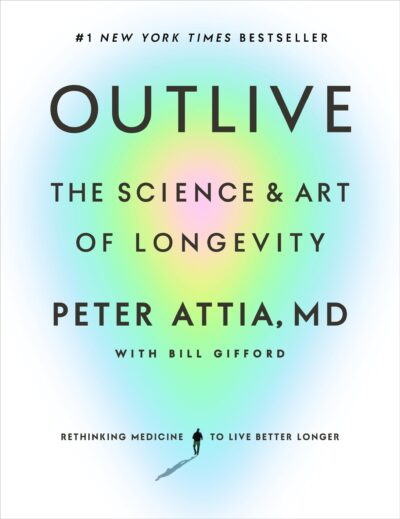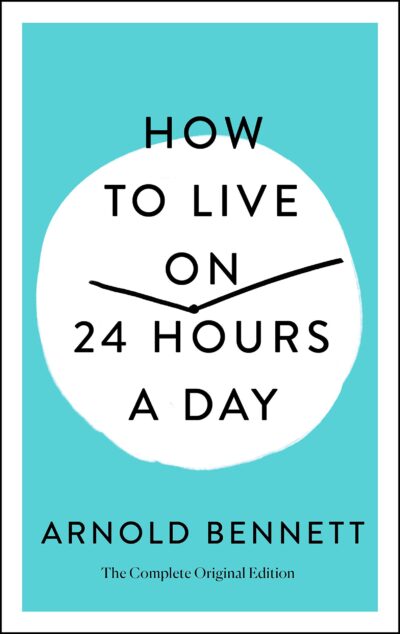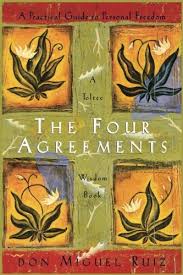68 Results with the "Self-help" genre
Adventure Fiction (1164)
Biography (435)
Business & Finance (1)
Children's Literature (124)
Comics (6)
Culture (51)
Drama (123)
Dystopian (29)
Fable (86)
Fantasy (1132)
Fantasy (203)
Fiction (1010)
Finance (1)
Gothic Fiction (12)
Historical Fiction (615)
History (122)
Horror (56)
Lifestyle (36)
Literary (404)
Literary Fiction (207)
Memoir (113)
Mystery (422)
Non-fiction (87)
Novel (549)
Paranormal Fiction (96)
Philosophical (182)
Philosophy (45)
Poetry (249)
Political Fiction (14)
Politics (42)
Practical (32)
Psychological (4)
Psychological Thriller (108)
Relationship (6)
Romance Novel (716)
Romantic Melodrama (14)
Satire (91)
Science (46)
Science Fiction (345)
Society (65)
Society (2)
Spiritual Growth (1)
story (2)
Thriller (704)
True Crime (56)
view (11)
Women's Fiction (2)
Young Adult (233)
-
 Chapter 4: Running for Your Life: The Anatomy of Survival. Survival is the core function of the human brain, and understanding the mechanisms behind how it protects us during times of danger is vital to understanding trauma. The brain operates with intricate systems designed to ensure our protection in life-threatening situations, triggering automatic responses that prioritize safety. From the moment danger is sensed, the brain activates a series of responses to help us react appropriately, often before we…
Chapter 4: Running for Your Life: The Anatomy of Survival. Survival is the core function of the human brain, and understanding the mechanisms behind how it protects us during times of danger is vital to understanding trauma. The brain operates with intricate systems designed to ensure our protection in life-threatening situations, triggering automatic responses that prioritize safety. From the moment danger is sensed, the brain activates a series of responses to help us react appropriately, often before we…-
360.1 K • Ongoing
-
-
 Chapter 1 introduces the central theme of longevity by exploring the deeply personal experiences of a physician who has witnessed death in its various forms, shaping his understanding of medicine and aging. The author recalls a pivotal moment during medical school when he encountered patient death for the first time, an experience that profoundly impacted his perspective on healthcare. This moment, followed by years of seeing both acute and chronic deaths during his residency at Johns Hopkins, led him to…
Chapter 1 introduces the central theme of longevity by exploring the deeply personal experiences of a physician who has witnessed death in its various forms, shaping his understanding of medicine and aging. The author recalls a pivotal moment during medical school when he encountered patient death for the first time, an experience that profoundly impacted his perspective on healthcare. This moment, followed by years of seeing both acute and chronic deaths during his residency at Johns Hopkins, led him to…-
87.7 K • Ongoing
-
-
 Chapter 15: Letting Go of the Past: EMDR (Eye Movement Desensitization and Reprocessing) is a therapeutic approach that helps individuals process and release trauma that continues to impact their present lives. It works by using bilateral stimulation, often through eye movements, to access traumatic memories, and encourage the brain to reframe them. The process helps to integrate these memories in a way that allows individuals to view their trauma as something that happened in the past, rather than…
Chapter 15: Letting Go of the Past: EMDR (Eye Movement Desensitization and Reprocessing) is a therapeutic approach that helps individuals process and release trauma that continues to impact their present lives. It works by using bilateral stimulation, often through eye movements, to access traumatic memories, and encourage the brain to reframe them. The process helps to integrate these memories in a way that allows individuals to view their trauma as something that happened in the past, rather than…-
360.1 K • Ongoing
-
-
 Chapter IX explores how genuine interest in the arts can evolve from a casual appreciation into a lifelong source of enrichment. Instead of filling spare hours with unproductive habits or feeling guilty over disinterest in literature, readers are encouraged to broaden their perspectives. Not everyone is naturally drawn to novels or poetry, and that’s acceptable—personal growth can emerge from many kinds of intellectual exploration. The important thing is not the subject, but the intent to engage with…
Chapter IX explores how genuine interest in the arts can evolve from a casual appreciation into a lifelong source of enrichment. Instead of filling spare hours with unproductive habits or feeling guilty over disinterest in literature, readers are encouraged to broaden their perspectives. Not everyone is naturally drawn to novels or poetry, and that’s acceptable—personal growth can emerge from many kinds of intellectual exploration. The important thing is not the subject, but the intent to engage with…-
62.8 K • Ongoing
-
-
Chapter
INDEX
 INDEX The page numbers in this index refer to the printed version of this book. To find the corresponding locations in the text of this digital version, please use the “search” function on your e-reader. Note that not all terms may be searchable. Page numbers in italics refer to illustrations. abandonment, 140, 141, 150, 179, 301, 304, 327, 340, 350 Abilify, 37, 101, 226 ACE (Adverse Childhood Experiences) study, 85, 144–48, 156, 347, 350–51 acetylcholine, 266 acupressure, 264–65,…
INDEX The page numbers in this index refer to the printed version of this book. To find the corresponding locations in the text of this digital version, please use the “search” function on your e-reader. Note that not all terms may be searchable. Page numbers in italics refer to illustrations. abandonment, 140, 141, 150, 179, 301, 304, 327, 340, 350 Abilify, 37, 101, 226 ACE (Adverse Childhood Experiences) study, 85, 144–48, 156, 347, 350–51 acetylcholine, 266 acupressure, 264–65,…-
360.1 K • Ongoing
-
-
 Chapter 5: Body-Brain Connections, the intricate relationship between the body and mind has been a subject of scientific study for centuries. Early thinkers like Charles Darwin recognized that emotional expressions were not just mental states but were deeply intertwined with our physical selves. This concept is still valid today, as we understand more about how our bodies react to emotional stimuli and how these reactions shape our overall mental health. Darwin’s observations in The Expression of the…
Chapter 5: Body-Brain Connections, the intricate relationship between the body and mind has been a subject of scientific study for centuries. Early thinkers like Charles Darwin recognized that emotional expressions were not just mental states but were deeply intertwined with our physical selves. This concept is still valid today, as we understand more about how our bodies react to emotional stimuli and how these reactions shape our overall mental health. Darwin’s observations in The Expression of the…-
360.1 K • Ongoing
-
-
 Chapter 3 of Objective, Strategy, Tactics – A Road Map for Reading This Book explores the importance of taking a structured, strategic approach to health and longevity. The chapter begins with the author reflecting on a funeral he attended, where he observed the significant physical and cognitive decline that often accompanies aging. This experience highlights a common trajectory in later life—one where individuals, despite their earlier years of independence, gradually lose their ability to function…
Chapter 3 of Objective, Strategy, Tactics – A Road Map for Reading This Book explores the importance of taking a structured, strategic approach to health and longevity. The chapter begins with the author reflecting on a funeral he attended, where he observed the significant physical and cognitive decline that often accompanies aging. This experience highlights a common trajectory in later life—one where individuals, despite their earlier years of independence, gradually lose their ability to function…-
87.7 K • Ongoing
-
-
 Chapter 16: Learning to Inhabit Your Body: Yoga. Yoga offers more than physical benefits—it facilitates a deeper connection with our bodies and emotions, fostering a sense of inner peace and self-acceptance. When we begin to focus on the body, we activate a natural inclination toward self-care that emerges from within. This shift in attention, away from societal pressures and external standards, allows us to experience a new level of authenticity in how we care for ourselves. By practicing mindfulness…
Chapter 16: Learning to Inhabit Your Body: Yoga. Yoga offers more than physical benefits—it facilitates a deeper connection with our bodies and emotions, fostering a sense of inner peace and self-acceptance. When we begin to focus on the body, we activate a natural inclination toward self-care that emerges from within. This shift in attention, away from societal pressures and external standards, allows us to experience a new level of authenticity in how we care for ourselves. By practicing mindfulness…-
360.1 K • Ongoing
-
-
 Chapter X begins with a reminder that nothing in life is ever truly mundane when examined with curiosity and depth. What might seem ordinary at first glance often reveals complex systems of causes and consequences when looked at closely. Understanding how things come to be—why certain patterns emerge, why people behave in specific ways, or why social shifts occur—turns routine observations into rich mental exercises. By embracing the interconnectedness of life events, even the smallest detail gains new…
Chapter X begins with a reminder that nothing in life is ever truly mundane when examined with curiosity and depth. What might seem ordinary at first glance often reveals complex systems of causes and consequences when looked at closely. Understanding how things come to be—why certain patterns emerge, why people behave in specific ways, or why social shifts occur—turns routine observations into rich mental exercises. By embracing the interconnectedness of life events, even the smallest detail gains new…-
62.8 K • Ongoing
-
-
Chapter
INTRODUCTION
 INTRODUCTION The Smokey Mirror THREE THOUSAND YEARS AGO, THERE WAS A HUMAN just like you and me who lived near a city surrounded by mountains. The human was studying to become a medicine man, to learn the knowledge of his ancestors, but he didn’t completely agree with everything he was learning. In his heart, he felt there must be something more. One day, as he slept in a cave, he dreamed that he saw his own body sleeping. He came out of the cave on the night of a new moon. The sky was clear, and he…
INTRODUCTION The Smokey Mirror THREE THOUSAND YEARS AGO, THERE WAS A HUMAN just like you and me who lived near a city surrounded by mountains. The human was studying to become a medicine man, to learn the knowledge of his ancestors, but he didn’t completely agree with everything he was learning. In his heart, he felt there must be something more. One day, as he slept in a cave, he dreamed that he saw his own body sleeping. He came out of the cave on the night of a new moon. The sky was clear, and he…-
90.9 K • Ongoing
-
- 1 2 … 7 Next
